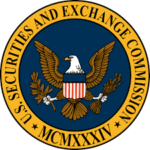There is a simple truth that crypto-crooks use to their advantage: “A fool and his/her/their money are soon parted.”

Grygo is the chief content officer for FTF & FTF News.
To say the least, the FTX fiasco is a wake-up call.
To recap, FTX founder Samuel Bankman-Fried is in a little trouble with the U.S. Justice Department, the SEC, the CFTC, and authorities of the Royal Bahamas government for his now-bankrupt crypto-currency exchange FTX and all its branches.
As of Tuesday, Dec. 13, during Bankman-Fried’s visit to the Bahamas, he has been arrested and formally charged:
- By the Justice Department via a grand jury for “conspiracy to commit wire fraud, wire fraud, conspiracy to commit commodities fraud, conspiracy to commit securities fraud, conspiracy to commit money laundering, and conspiracy to defraud the Federal Election Commission and commit campaign finance violations;”
- By the SEC for “orchestrating a scheme to defraud equity investors in FTX Trading Ltd. (FTX), the crypto trading platform of which he was the CEO and co-founder;” and
- By the CFTC via “a complaint in the U.S. District Court for the Southern District of New York against Samuel Bankman-Fried … and Alameda Research” for fraud, material misrepresentations, and the allegation that the “defendants’ actions caused the loss of over $8 billion in FTX customer deposits.”
 On Monday, authorities arrested Bankman-Fried in the Bahamas and he then appeared in court Tuesday in Nassau, according to a report in The Wall Street Journal. Authorities denied Bankman-Fried bail and sent him to jail until Feb. 8. The case has been assigned to a federal judge in Manhattan but there has been no time frame set for the extradition of Bankman-Fried.
On Monday, authorities arrested Bankman-Fried in the Bahamas and he then appeared in court Tuesday in Nassau, according to a report in The Wall Street Journal. Authorities denied Bankman-Fried bail and sent him to jail until Feb. 8. The case has been assigned to a federal judge in Manhattan but there has been no time frame set for the extradition of Bankman-Fried.
To drill down further, the SEC’s complaint alleges that “since at least May 2019, FTX, based in The Bahamas, raised more than $1.8 billion from equity investors, including approximately $1.1 billion from approximately 90 U.S.-based investors.”
While FTX was presented as “a safe, responsible crypto asset trading platform … the complaint alleges that, in reality, Bankman-Fried orchestrated a years-long fraud to conceal from FTX’s investors.”
The SEC alleges that there was:
- An “undisclosed diversion of FTX customers’ funds to Alameda Research LLC, his privately-held crypto hedge fund;”
- “the undisclosed special treatment afforded to Alameda on the FTX platform, including providing Alameda with a virtually unlimited ‘line of credit’ funded by the platform’s customers and exempting Alameda from certain key FTX risk mitigation measures;” and
- “Undisclosed risk stemming from FTX’s exposure to Alameda’s significant holdings of overvalued, illiquid assets such as FTX-affiliated tokens.”
The SEC also “alleges that Bankman-Fried used commingled FTX customers’ funds at Alameda to make undisclosed venture investments, lavish real estate purchases, and large political donations.”
Overall, Bankman-Fried’s case is not one of “mismanagement or poor oversight, but of intentional fraud, plain and simple,” says U.S. Attorney Damian Williams for the Southern District of New York, in a prepared statement.
 In this fast-moving drama, the CEO who is overseeing FTX’s bankruptcy John J. Ray III, testified before the House Financial Services Committee, led by Chairwoman Maxine Waters, on the same day as Bankman-Fried was being arraigned. In fact, Ray testified in place of Bankman-Fried who was originally slated to appear before the committee.
In this fast-moving drama, the CEO who is overseeing FTX’s bankruptcy John J. Ray III, testified before the House Financial Services Committee, led by Chairwoman Maxine Waters, on the same day as Bankman-Fried was being arraigned. In fact, Ray testified in place of Bankman-Fried who was originally slated to appear before the committee.
Among the more shocking of Ray’s revelations during his testimony was that FTX’s billions of dollars or business were handled via invoices managed via Slack and QuickBooks; there was no good, working system of books and records; and there were deep entanglements between FTX and Alameda. “I don’t trust a single piece of paper in this organization,” Ray alleged.
“We allege that Sam Bankman-Fried built a house of cards on a foundation of deception while telling investors that it was one of the safest buildings in crypto,” says Gary Gensler, the chair of the SEC in a prepared statement. “The alleged fraud committed by Mr. Bankman-Fried is a clarion call to crypto platforms that they need to come into compliance with our laws. … To those platforms that don’t comply with our securities laws, the SEC’s Enforcement Division is ready to take action.”
FTF News was not able to reach Bankman-Fried or his associates for comment. The Justice Department reminds: “An indictment is merely an allegation. All defendants are presumed innocent until proven guilty beyond a reasonable doubt in a court of law.”
But, as this scandal deepens, a few things are becoming immediately apparent.
First, this situation is allegedly worse than the Great Recession because it is a cross between a Ponzi scheme and the transacting of rotting financial instruments. We have no idea how many organizations are entangled in this disaster or subsequent crypto scandals to come.
 Secondly, it’s time for the world’s central banks to get off their assets and create central bank digital currencies (CBDCs) post-haste and make them work together safely. Institutions, retail firms, and most common folk understand that this is the 21st Century and that there is a thing called information technology that can facilitate digitized versions of incumbent currencies. It is not rocket science and would help rebuild faith in central banks.
Secondly, it’s time for the world’s central banks to get off their assets and create central bank digital currencies (CBDCs) post-haste and make them work together safely. Institutions, retail firms, and most common folk understand that this is the 21st Century and that there is a thing called information technology that can facilitate digitized versions of incumbent currencies. It is not rocket science and would help rebuild faith in central banks.
Lastly, the regulators, legislators, and securities/digital asset/crypto industry groups have to come to an agreement on:
- Whether or not new regulation is needed — it might be the case that there are enough rules on the books and that this is a situation that needs a new, global, multi-agency approach to enforcement;
- Clarify which regulators or authorities or consortiums thereof should take the lead in enforcement — the squabbling among them is now academic — a huge fraud happened under their noses and they look clueless and ineffective or worse;
- And, finally, while we’re in a crypto winter, it might be wise if securities firms, investor groups, and individuals think about pulling all of their money out of anything crypto, digital, NFT, etc. until they really know what they’re investing in and until there are clear, global safeguards for their money. While the cryptography behind cryptocurrencies borders on mind-boggling, there is a simple truth that the crypto-crooks use to their advantage: “A fool and his/her/their money are soon parted.”
